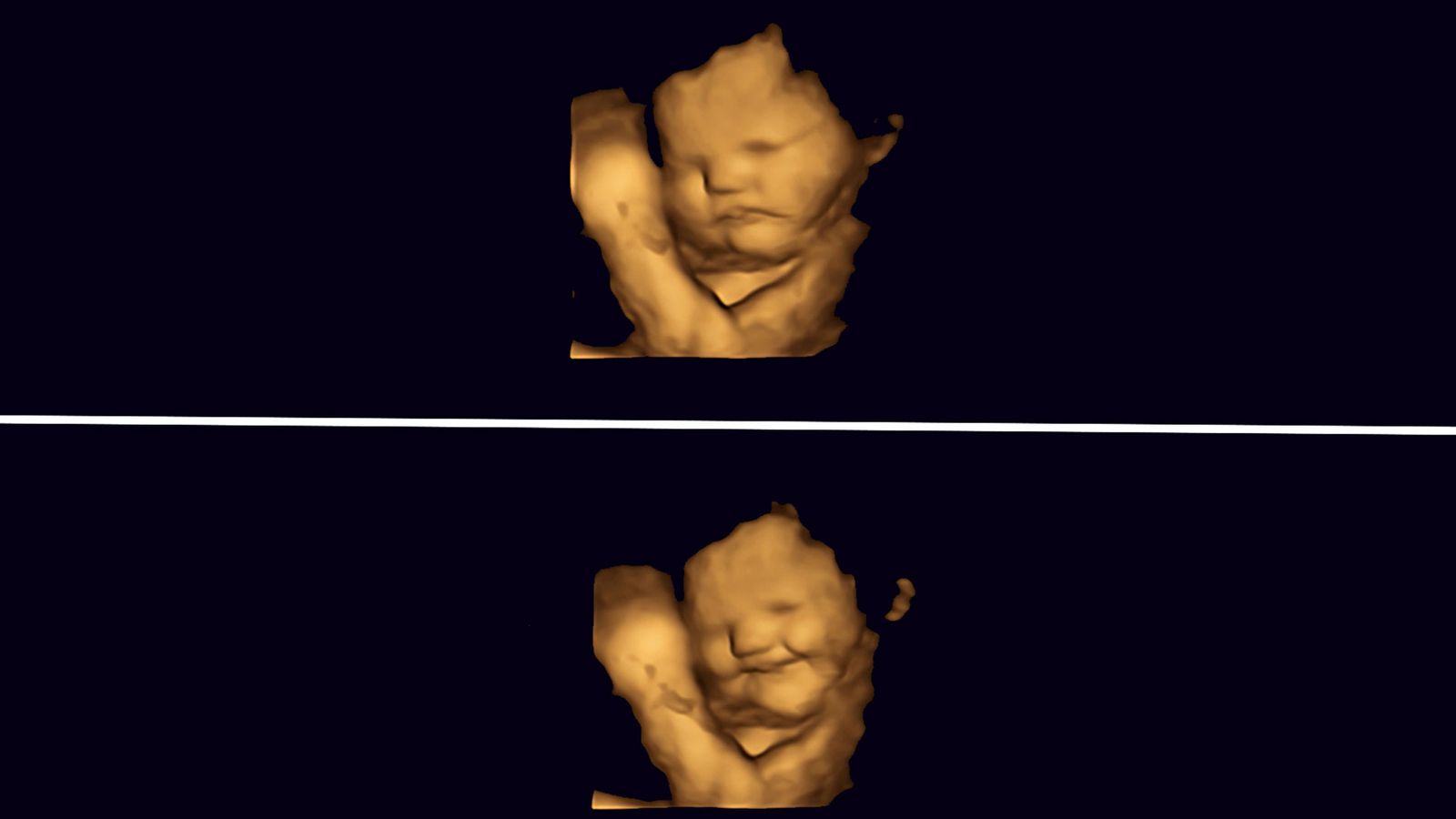Babies in the womb react positively to their mothers eating carrots but appear to cry after they have eaten green vegetables, a new study suggests.
Researchers at Durham University took 4D ultrasounds of 100 pregnant women at 32 and 36 weeks, 20 minutes after consuming tablets filled with either carrot or kale powder.
They found that foetuses whose mothers had taken the carrot tablets appeared to make ‘smiling faces’ soon afterwards.
But scans of women who took the kale tablets showed their babies making ‘crying faces’.
Comparing the two groups of women to others in a control group who hadn’t consumed anything indicated that exposure to just a small amount of flavour was enough to stimulate a reaction.
The study, published in the journal Psychological Science, is the first in the world to look at how babies react to taste and smell before they are born.
It’s believed they can experience the flavour of their mother’s food by inhaling or swallowing amniotic fluid in the womb.
Chris Kaba’s family speak out after being shown bodycam footage of police shooting him dead
All UK businesses secure energy support package ‘costing tens of billions’ to slash bills
Liz Truss’s plan for tax cuts to boost economy ‘a gamble at best’, says leading think tank
The results of the study could mean mothers are able to influence their babies’ taste preferences before they are born, encouraging them to eat healthily and avoiding ‘food fussiness’.
Postgraduate Beyza Ustun, who led the research, said: “Our study is the first to see these reactions prior to birth.
“It was really amazing to see unborn babies’ reaction to kale or carrot flavours during the scans and share those moments with their parents.”
Read more from Sky News:
Extra-terrestrial water found in meteorite
New malaria vaccine could cut deaths by 70%
Research co-author Professor Jackie Blissett, of Aston University, added: “It could be argued that repeated prenatal flavour exposures may lead to preferences for those flavours experienced postnatally.
“In other words, exposing the foetus to less ‘liked’ flavours, such as kale, might mean they get used to those flavours in utero.
“The next step is to examine whether foetuses show less ‘negative’ responses to these flavours over time, resulting in greater acceptance of those flavours when babies first taste them outside of the womb.”








